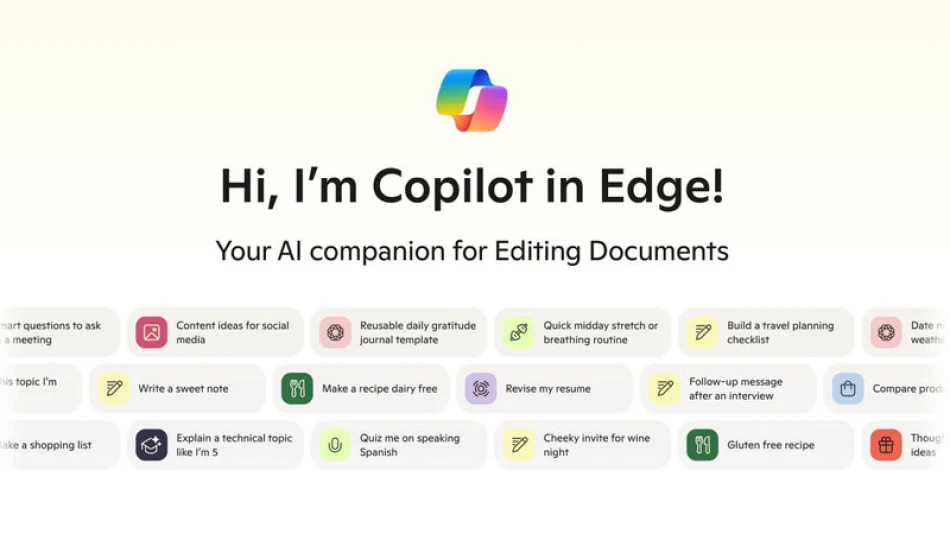
Microsoft Unveils AI-Powered Browsing Experience for Enhanced Exploration
Microsoft's AI-Powered Browser Revolution Could Reshape How We Shop and Browse Online
Microsoft is testing a groundbreaking "Copilot Mode" within its Edge browser that promises to transform web browsing into an AI-driven experience. The experimental feature allows users to interact with multiple browser tabs simultaneously, make restaurant reservations, compare products across websites, and execute complex tasks through voice commands—potentially setting a new standard for intelligent web navigation.
Beyond Traditional Browsing: What Copilot Mode Actually Does
The new mode represents a significant leap from conventional browser assistants. Unlike simple chatbots that respond to queries, Copilot Mode can access all open browser tabs, enabling it to compare hotel prices across multiple booking sites or generate quick summaries of the best purchasing options from various e-commerce platforms.
Voice commands add another layer of functionality, allowing users to navigate websites or open dedicated tabs for product comparisons without touching their keyboard. This hands-free approach mirrors the growing trend toward voice-first interfaces that companies like Amazon and Google have been pushing through their smart speakers.
The Privacy Trade-Off: Access to Your Digital Life
Microsoft's ambitions extend beyond basic browsing assistance. With user permission, Copilot will access browsing history and stored credentials to make reservations on behalf of users. This level of integration raises both exciting possibilities and privacy concerns that echo broader debates about AI access to personal data.
The feature builds on Microsoft's "Copilot Vision" technology, which aims to organize both current and past browsing activities. This comprehensive approach suggests Microsoft is positioning Edge not just as a browser, but as an intelligent digital assistant that understands user preferences and behavior patterns.
Market Implications: The Battle for Browser Dominance
This move puts significant pressure on Google Chrome, which dominates the browser market with over 60% market share. Google has been integrating its Bard AI into search results, but Microsoft's approach of embedding AI directly into the browsing experience represents a more aggressive strategy.
For e-commerce companies, Copilot Mode could fundamentally alter how consumers discover and compare products. If users rely on AI to make purchasing decisions across multiple sites simultaneously, traditional SEO and digital marketing strategies may need complete overhauls.
The Subscription Model Looms
Microsoft has confirmed that Copilot Mode will be free for a limited time with usage restrictions, strongly indicating a future paid subscription model. This aligns with the company's broader strategy of monetizing AI features across its product suite, from Office 365 Copilot to Azure AI services.
The freemium approach allows Microsoft to build user dependency before introducing pricing tiers—a strategy that has proven successful with services like Microsoft 365 and LinkedIn Premium.
What This Means for Competitors and Consumers
Apple's Safari and Google's Chrome will likely need to accelerate their own AI integration plans to remain competitive. The stakes are particularly high given that browser choice often determines which AI ecosystem users adopt for their daily digital tasks.
For consumers, the optional nature of Copilot Mode offers a glimpse into a future where AI assistants handle routine web tasks. However, the effectiveness will ultimately depend on accuracy and user trust—two factors that have challenged AI implementations across various industries.
As this experimental feature evolves, it could establish the template for next-generation web browsers where artificial intelligence becomes as fundamental as bookmarks and tabs are today.
Most Viewed News

 Sara Khaled
Sara Khaled






